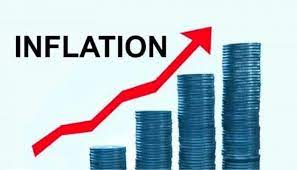A new report by the Central Bank of Nigeria (CBN) has reflected that majority of Nigerian households and business owners believe that Nigeria’s current inflation rate remains high with the attendant negative implications for citizens’ wellbeing and sustainable growth of the nation’s economy.
The apex bank, in its just published ‘Inflation Expectations December 2024′ Report, indicated that 83.5% of Households and 80.6% of business owners perceived the nation’s general price level to be high, based on the persistent pressures faced by consumers and business entities and highlighting their concerns over the rising cost of living and doing business in the country.
According to the report’s findings based on perceptions of micro, small, medium and large business owners, at least 83.6% of large businesses believe the nation’s inflation rate is high, 75.6% of medium sized business owners share the same view compared to 83.9% of small business owners, who expressed the same opinion.
Similarly, the report showed that 88.2% of households earning between N150,001 and N200,000 as monthly incomes believed that the inflation rate was high, reflecting the strain most middle-income earners , who are increasingly finding it difficult to buy essential goods and services due to rising prices are facing.
As expected, the low-income earners are far more vulnerable to the inflationary pressures in the economy, particularly as food and transportation costs that make up the largest chunk of their expenses continued to surge over the past year.
The latest December 2024 inflation rate published by the National Bureau of Statistics (NBS) showed that the headline inflation rose to 34.80% year-on-year, with food inflation peaking at about 40%.
Data from the statistics agency further indicated that the average food prices surged by 91.6% between December 2023 and December last year, due to rising energy costs, exchange rate volatility and fiscal policies of the government.
For instance, the surging prices in petrol and diesel prices following the removal of fuel subsidy by the present administration since May 2023 as well as electricity tariff and other taxes hikes have adversely impacted households and businesses over the period.






